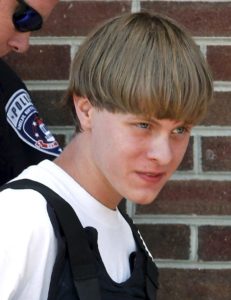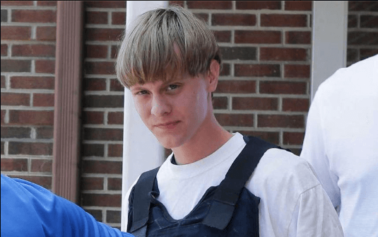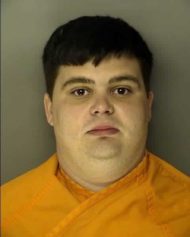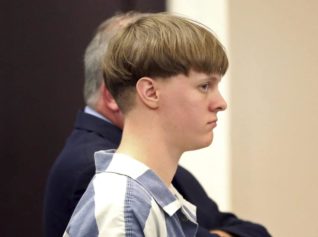
Police lead Dylann Roof into the courthouse in Shelby, North Carolina, after his arrest on June 18, 2015. Photo by Reuters/Jason Miczek/File
Dylann Roof, the gunman responsible for murdering nine Black parishioners at the Mother Emanuel A.M.E. Church in Charleston, South Carolina, is hoping to have his fate decided by a judge, rather than a jury.
According to a notice filed by Roof’s lawyers, the 22-year-old defendant has opted to forgo his constitutional right to a trial by jury.
“Pursuant to this order, the defendant hereby states that he is willing to waive jury, and to be tried and sentenced by the court,” read the notice filed by attorneys David Bruck of Lexington, Virginia, and Michael O’Connell of Mount Pleasant, South Carolina.
According to Reuters, the court filing also noted that federal prosecutors would most likely deny Roof’s request for a bench trial.
“Counsel for the government has informed defense counsel that the government will not consent to waive jury at either stage of this case,” the filing stated.
Federal prosecutors are seeking the death penalty against Roof over the June 17, 2015 church massacre. He attended Bible study at the historically Black church that evening, then opened fire on parishioners. After his capture, Roof reportedly told investigators he wanted to start a “race war,” CNN.com reports.
Per Reuters, the church shooter was indicted on 33 counts including hate crimes, obstruction of religion, and firearms offenses. Just this week, U.S. District Judge Richard Gergel scheduled Roof’s federal trial for Nov. 2. Roof faces the death penalty, in addition to charges of murder and attempted murder in a separate state trial, which is set to begin in January 2017, the news site reports.
Friday’s court filing did not specify why Roof chose to waive his jury trial.
According to U.S. News & World Report, attorney David Bruck said that if his client was forced to face a jury, he would ask the judge to only select jurors from the Charleston area, not statewide. Judge Gergel expects the jury selection process, guilt, and penalty phases of the federal trial to take at least six weeks, Reuters reports.
The news site also notes that with jury selection for the state trial scheduled for December, it’s likely the federal and state proceedings will overlap.


